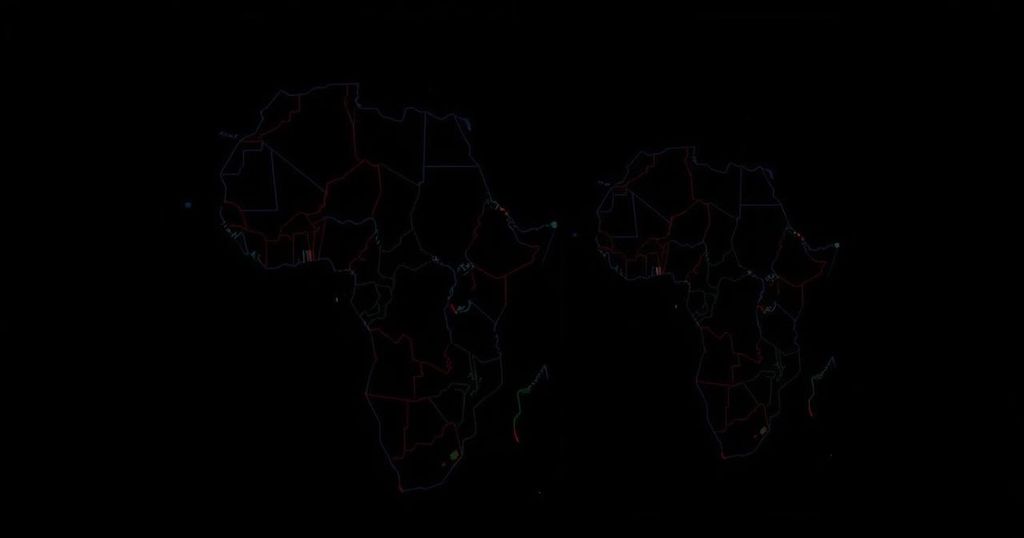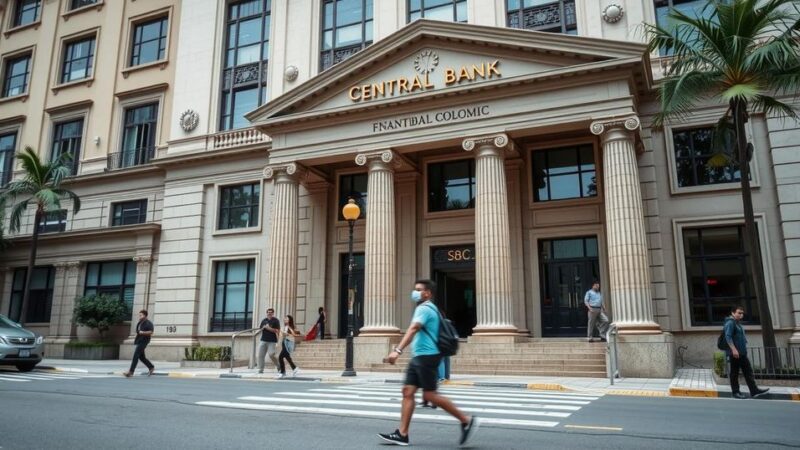The Africa Finance Corporation has signed crucial concession agreements with Angola and Zambia to advance the Zambia Lobito Rail Project. This 800km railway will link the two nations, enhancing trade capabilities and supporting regional economic growth. The project is expected to generate substantial economic benefits and create jobs while ensuring compliance with environmental regulations.
In a landmark development for the Zambia Lobito Rail Project, the Africa Finance Corporation (AFC) has formalized concession agreements with both the governments of Angola and Zambia. This pivotal arrangement, signed on September 23rd, coincided with a ceremonial event overseen by U.S. Secretary of State Antony J. Blinken and representatives from the Biden Administration’s G-7 Partnership for Global Infrastructure and Investment (PGI), during the 79th session of the United Nations General Assembly (UNGA 79). These agreements establish the AFC as the primary driver of the financing, construction, ownership, and operation of this transformative railway initiative. Designated as the lead developer last year, the AFC is collaborating closely with multiple stakeholders, including the United States Government, the European Union, the African Development Bank, and the regional governments of Angola, the Democratic Republic of Congo, and Zambia. This ambitious project encompasses the construction of an approximately 800-kilometer greenfield railway that will connect the Benguela railway line in Luacano, Angola, to the existing Zambia Railways line in Chingola, Zambia. Upon its completion, this trade corridor is expected to significantly improve the movement of goods and facilitate investments across diverse sectors, including agriculture, health, digital infrastructure, mining, and energy access along the route. In parallel with the signing of the concession agreements, the AFC secured a grant of US$ 2 million from the United States Trade and Development Agency (USTDA) to support the completion of essential environmental and social studies. This grant marks the inaugural use of USTDA funding by the Corporation and is aimed at enabling comprehensive Environmental and Social Impact Assessments (ESIA), ensuring that the Zambia Lobito Rail Project adheres to international best practices and environmental standards. The AFC’s leadership role in this railway project is anticipated to not only provide a streamlined route for transporting minerals and metals from the region but also to contribute to the establishment of a critical trade corridor spanning Africa. This corridor will connect the Port of Lobito on the Atlantic Ocean with the Port of Dar es Salaam on the Indian Ocean, promoting both global trade and intra-African commerce. Economically, the project is projected to generate benefits estimated at approximately $3 billion across both nations, mitigate carbon emissions by about 300,000 tons annually, and create over 1,250 jobs throughout the construction and operational phases. Mr. Ricardo Viegas d’Abreu, Honourable Minister of Transport for Angola, remarked, “We are pleased to partner with Africa Finance Corporation on this transformative project which will deepen our nation’s role as a regional logistics hub, boosting trade not only with Zambia but with the rest of the world.” Similarly, Mr. Frank Tayali MP, Honourable Minister of Transport for Zambia, stated, “The Zambia Lobito Rail Project is an important milestone in our efforts to modernise infrastructure, enhance the competitiveness of our economy and improve the livelihoods of our people. We look forward to partnering with Africa Finance Corporation to deliver on this groundbreaking project.” Samaila Zubairu, President & CEO of Africa Finance Corporation, highlighted the project’s significance by stating, “The Zambia Lobito Rail Project represents a game-changing development for the region, unlocking tremendous potential for trade, industrialisation, and socio-economic growth. AFC is proud to partner with the governments of Angola and Zambia to deliver world class rail infrastructure, which will accelerate industrial development in Africa, promote regional integration and provide a vital export route for copper and other critical minerals for the global energy transition.” The development of this corridor will provide Zambia and the Democratic Republic of Congo with an alternative, strategically advantageous route for international exports. This newly established connection will serve as the shortest pathway for trade, linking key mining regions, agricultural clusters, and businesses between these nations and the Port of Lobito, thereby substantially enhancing the efficiency of cargo movement from the Copperbelt and Northwestern Provinces into Western markets.
The Zambia Lobito Rail Project represents a transformative initiative aimed at enhancing regional trade infrastructure in Southern Africa. The project is essential for improving transportation links between mineral-rich areas in Zambia and international markets via the Port of Lobito in Angola. This project is aligned with broader efforts to modernize infrastructure, foster economic growth, and facilitate efficient distribution of goods across the region, thus supporting various sectors such as agriculture, health, and mining. By establishing a reliable rail link, stakeholders aim to promote regional cooperation, enhance trade capabilities, and ensure adherence to international environmental standards as mandated by funding agreements.
In conclusion, the signing of concession agreements by the Africa Finance Corporation with Angola and Zambia marks a significant advancement in the Zambia Lobito Rail Project. This initiative is poised to improve trade routes, foster economic growth, and create jobs while adhering to international environmental standards. With the collaboration of multiple governments and organizations, the project aims to enhance regional integration and promote sustainable development across Africa.
Original Source: www.railwaysafrica.com







